Abstract
1. Effects of the beta-adrenoceptor antagonists, propranolol (40, 80 and 160 mg) and atenolol (50 and 100 mg) on the electroencephalogram and on body sway, were studied in 12 healthy male subjects. The study was double-blind, and included two placebos and an active control, oxazepam (15 mg). Medication was ingested at 11.00 h, and assessments were made before, and at 2 h and 4 h after ingestion. 2. All doses of both beta-adrenoceptor antagonists modified the electroencephalogram, and the changes reported were statistically significant at probability levels of less than 5%. The circadian rise in alpha activity was reduced by both beta-adrenoceptor antagonists as well as by oxazepam. Atenolol also decreased beta activity. 3. Body sway was modified by atenolol and oxazepam (P less than 0.05). The increase with oxazepam was most marked in the low frequency component (0.05-2.25 Hz) of the spectrum, while atenolol modified only the component of higher frequency (2.25-4.0 Hz). 4. These observations suggest that propranolol and atenolol have a sedative effect, and that hydrophilic antagonists are unlikely to be free of central activity. The changes in body sway could imply that peripheral mechanisms may be modified at least with atenolol.
Full text
PDF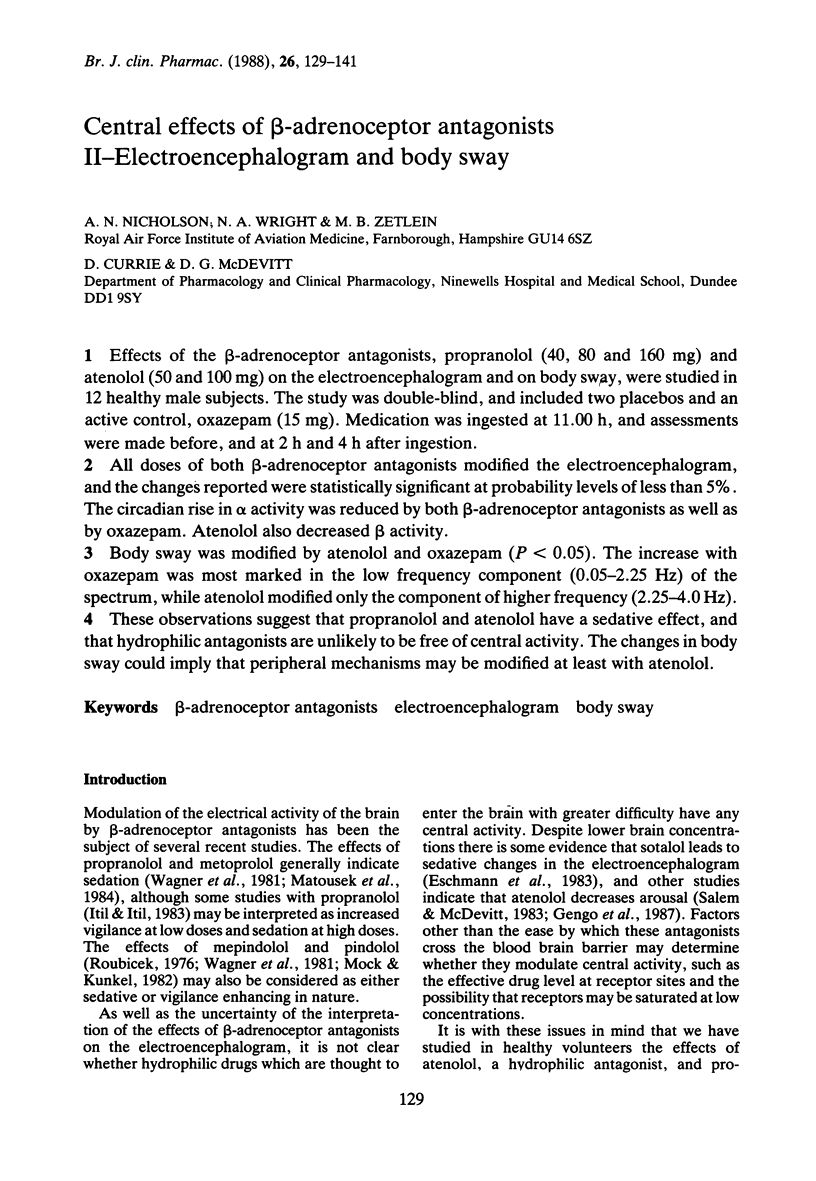
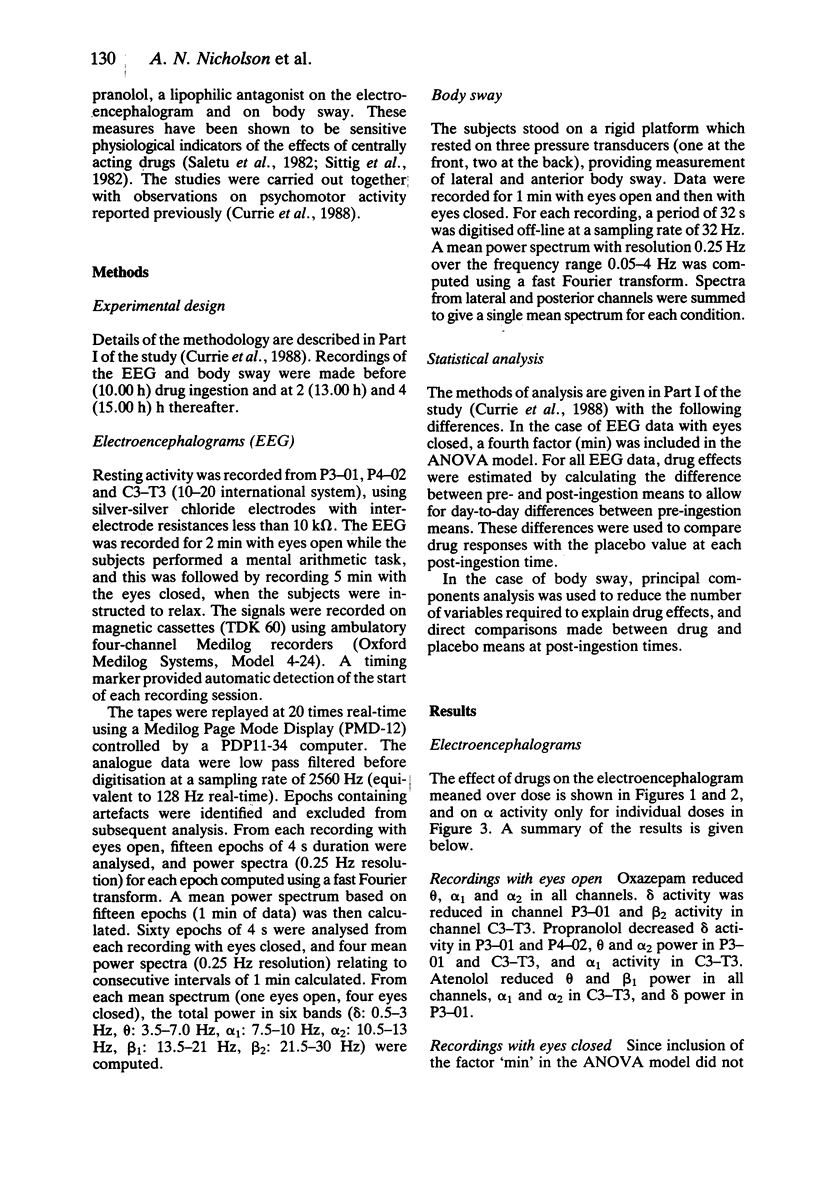
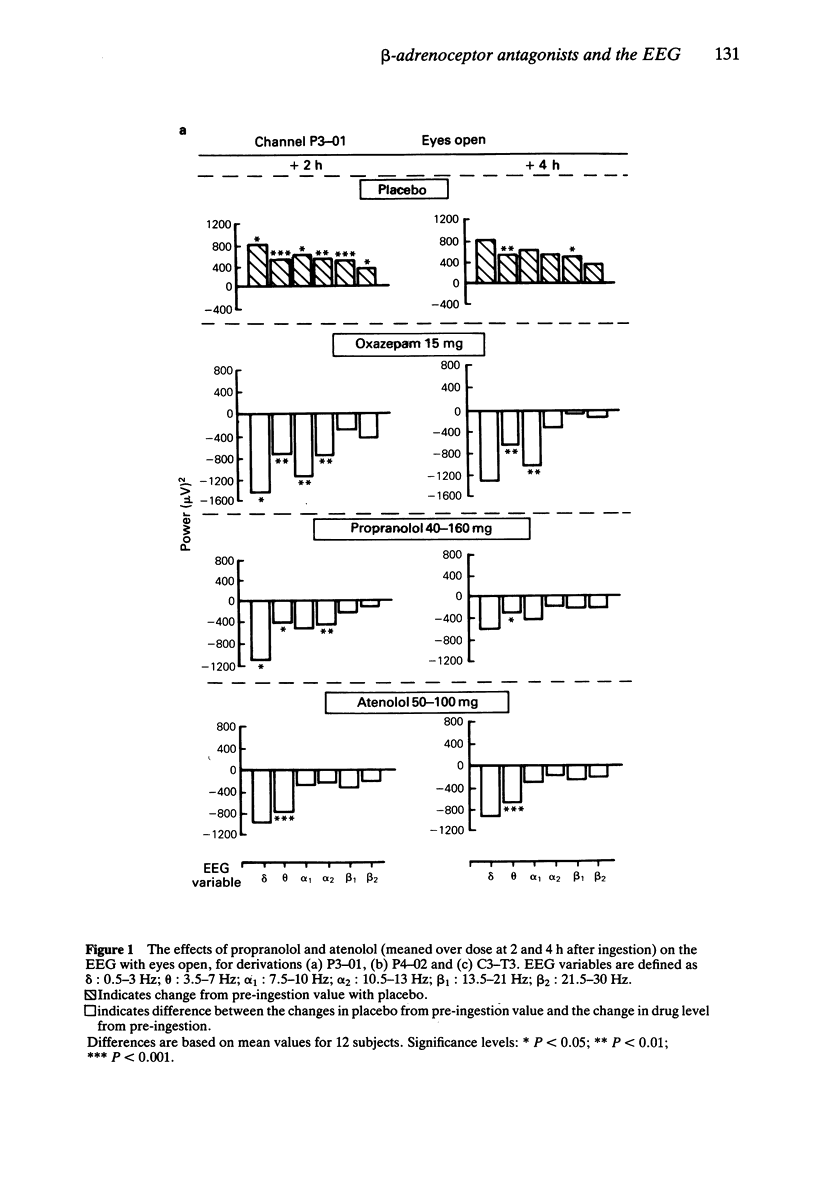
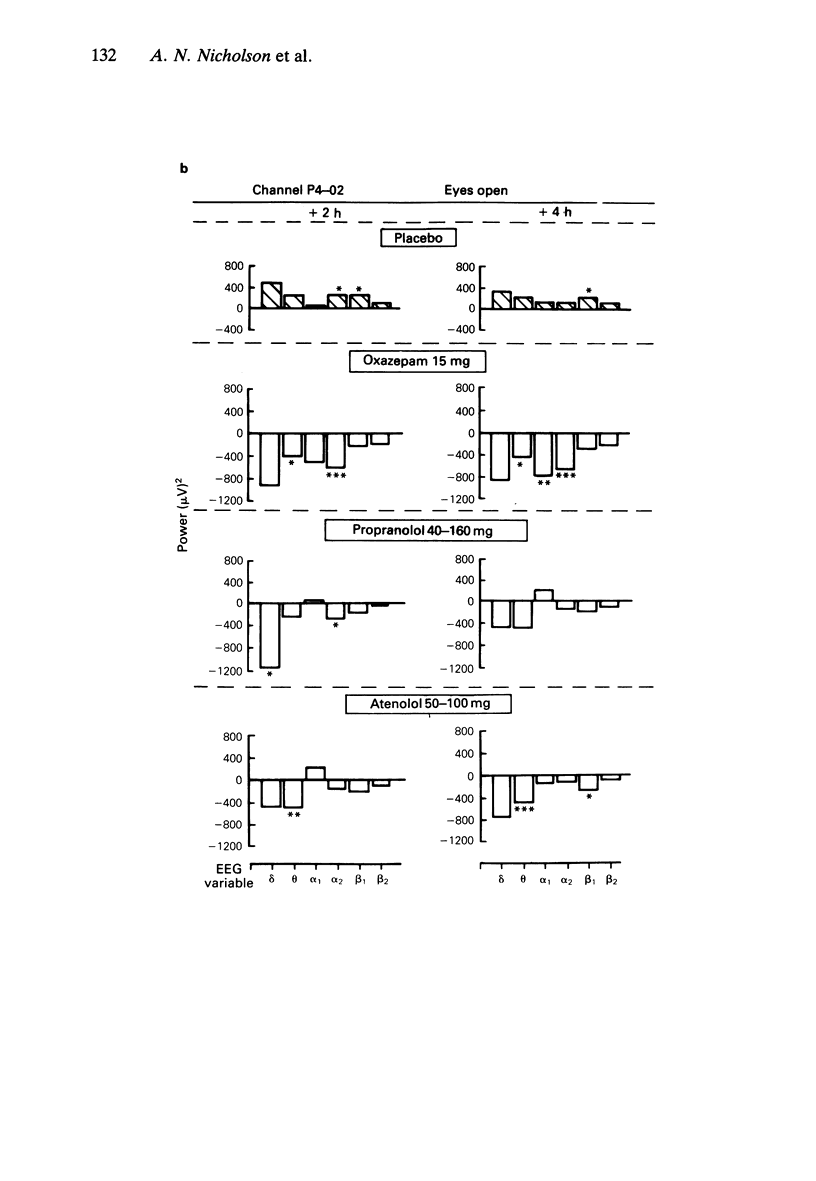
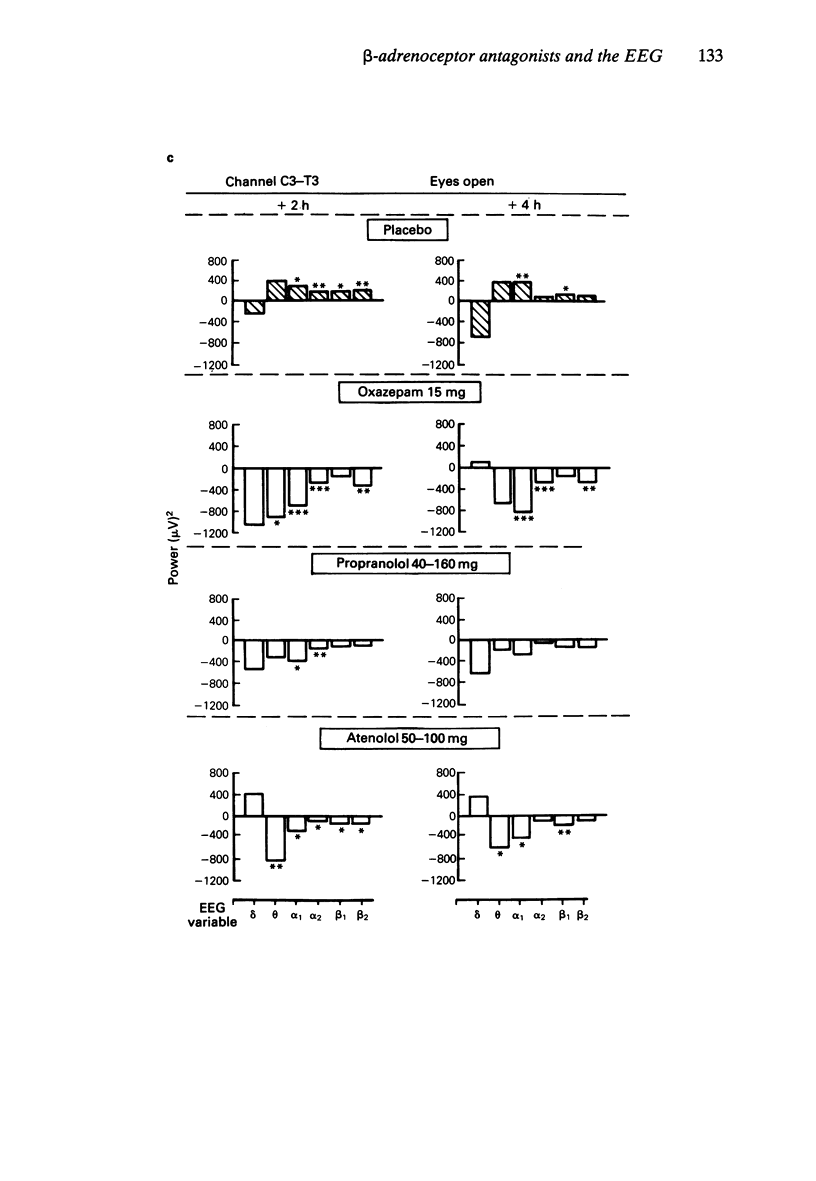
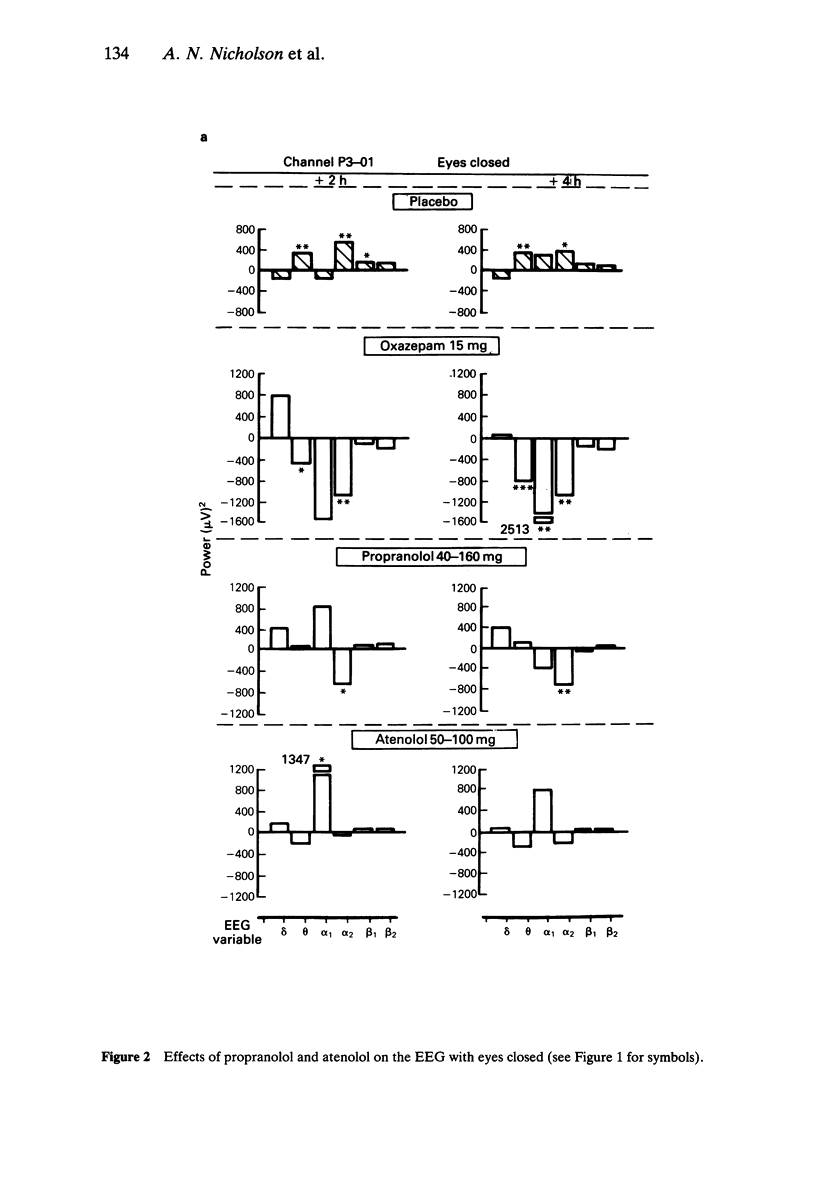
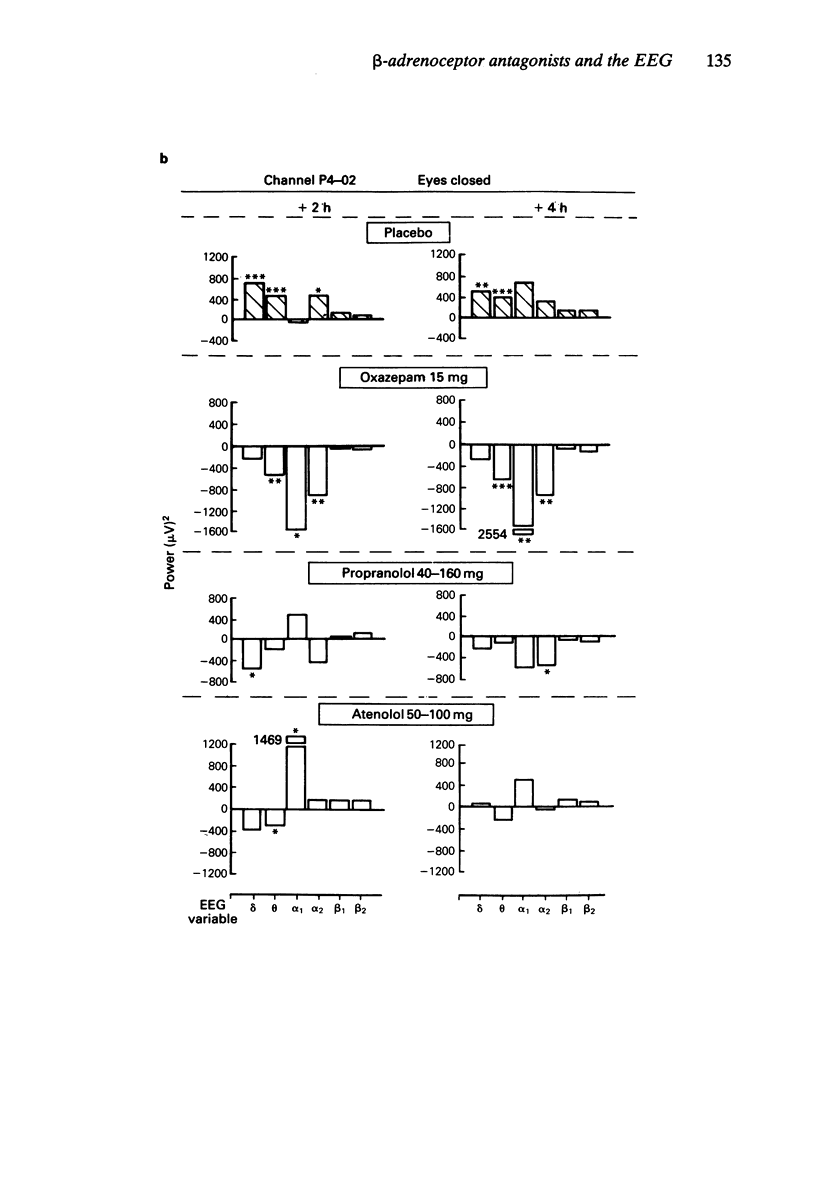

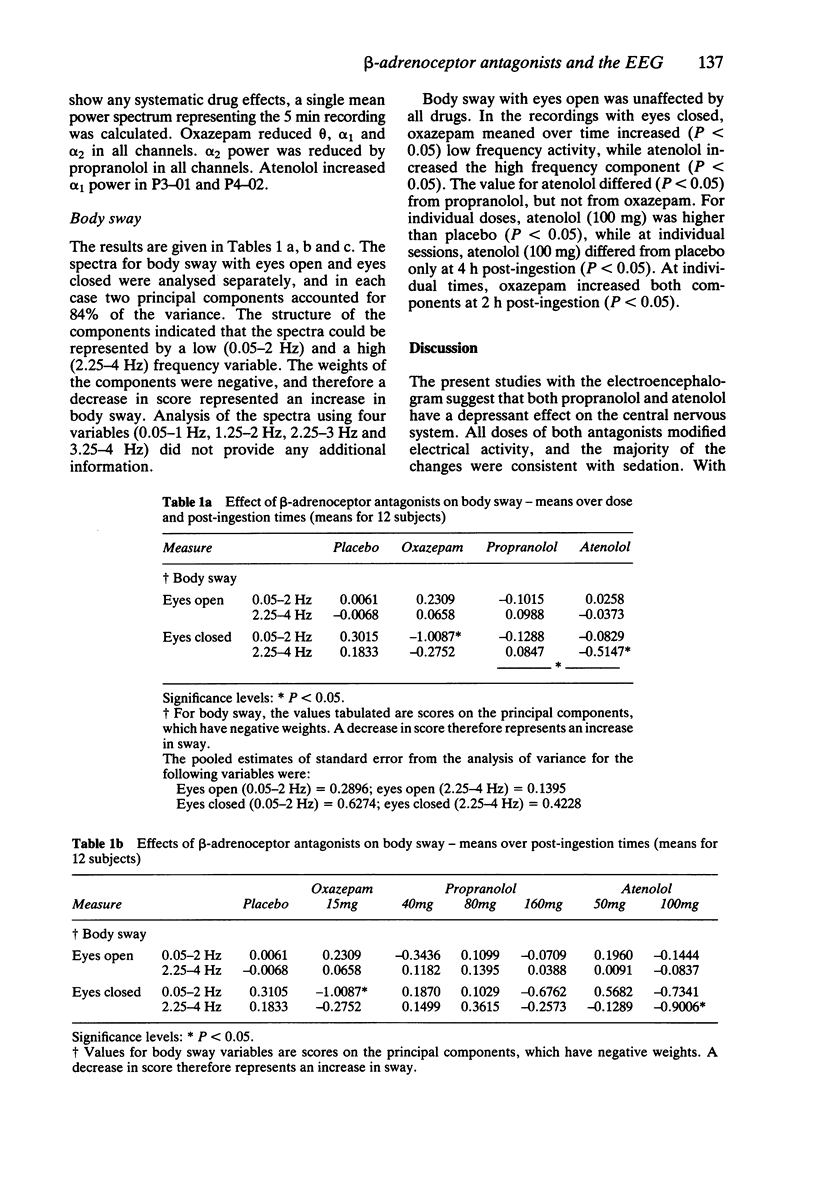
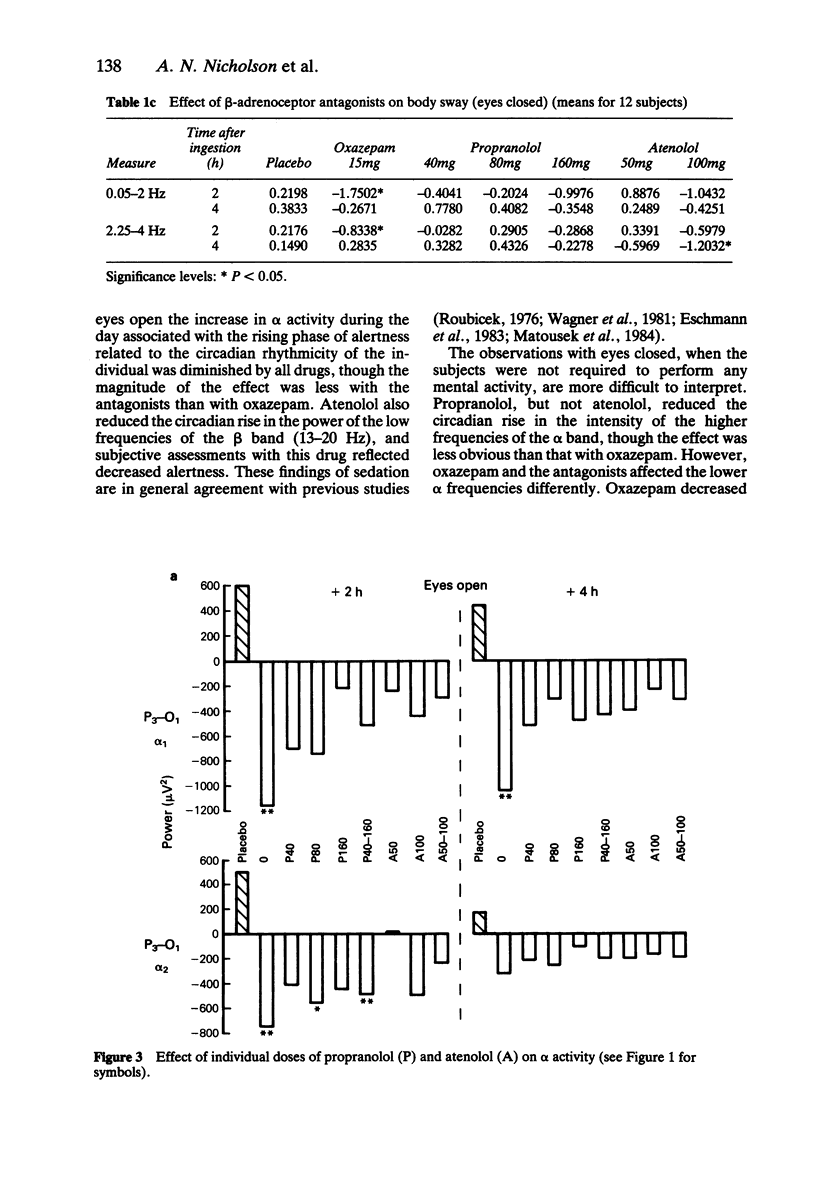
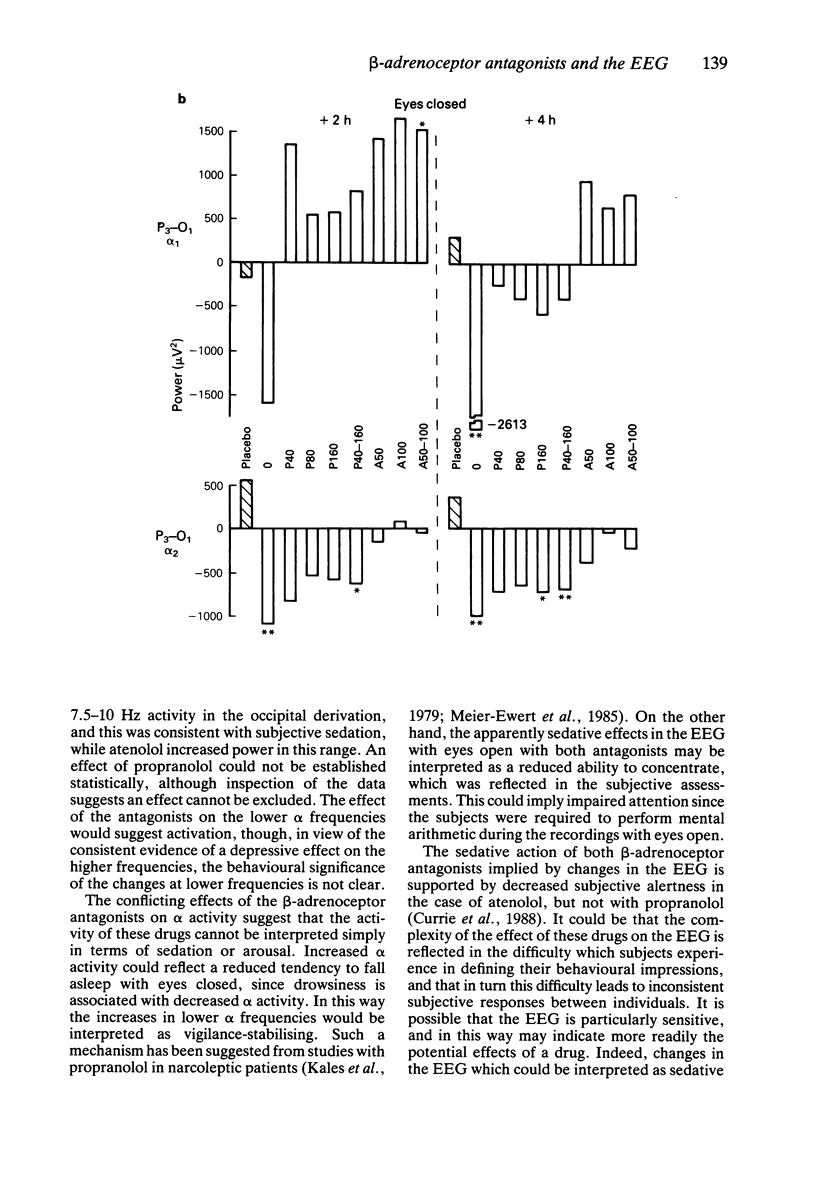
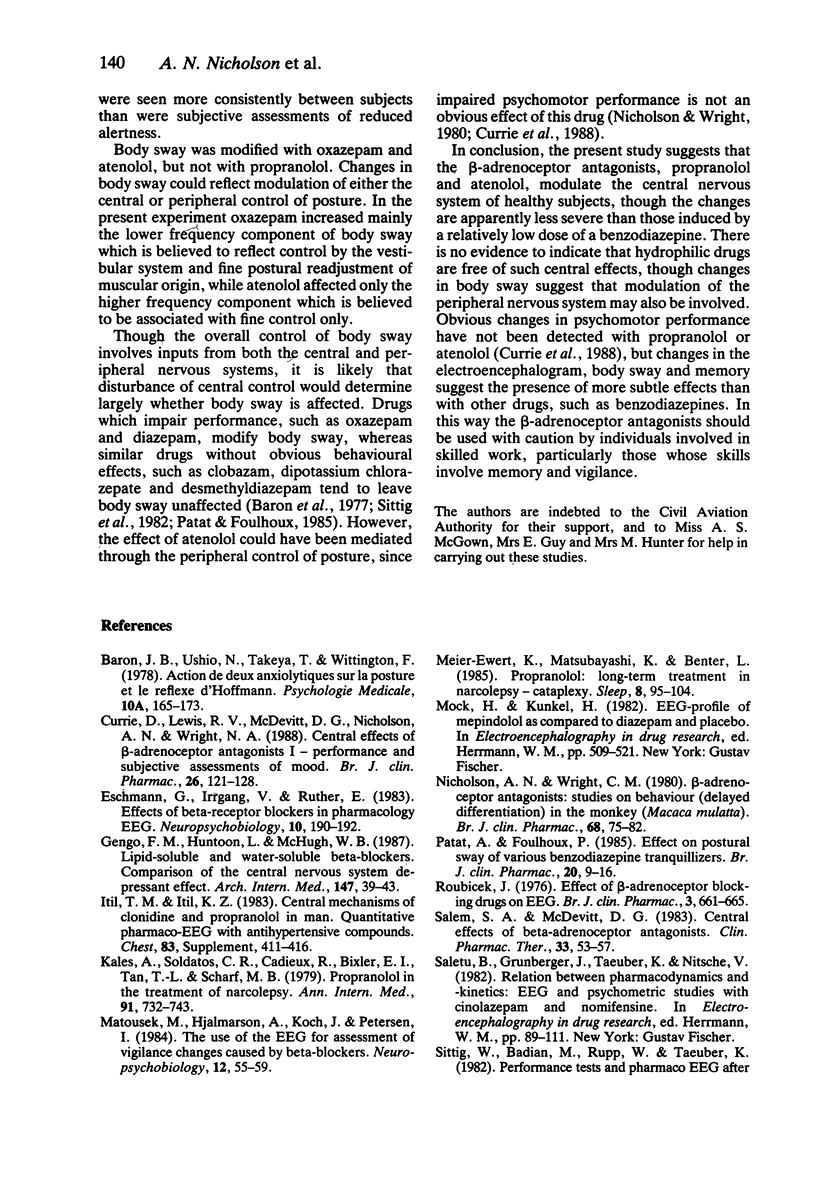

Selected References
These references are in PubMed. This may not be the complete list of references from this article.
- Currie D., Lewis R. V., McDevitt D. G., Nicholson A. N., Wright N. A. Central effects of beta-adrenoceptor antagonists. I--Performance and subjective assessments of mood. Br J Clin Pharmacol. 1988 Aug;26(2):121–128. doi: 10.1111/j.1365-2125.1988.tb03378.x. [DOI] [PMC free article] [PubMed] [Google Scholar]
- Eschmann G., Irrgang V., Rüther E. Effects of beta-receptor blockers in pharmacology EEG. Neuropsychobiology. 1983;10(2-3):190–192. doi: 10.1159/000118008. [DOI] [PubMed] [Google Scholar]
- Gengo F. M., Huntoon L., McHugh W. B. Lipid-soluble and water-soluble beta-blockers. Comparison of the central nervous system depressant effect. Arch Intern Med. 1987 Jan;147(1):39–43. doi: 10.1001/archinte.147.1.39. [DOI] [PubMed] [Google Scholar]
- Itil T. M., Itil K. Z. Central mechanisms of clonidine and propranolol in man. Quantitative Pharmaco-EEG with antihypertensive compounds. Chest. 1983 Feb;83(2 Suppl):411–416. [PubMed] [Google Scholar]
- Kales A., Soldatos C. R., Cadieux R., Bixler E. O., Tan T. L., Scharf M. B. Propranolol in the treatment of narcolepsy. Ann Intern Med. 1979 Nov;91(5):741–743. doi: 10.7326/0003-4819-91-5-741. [DOI] [PubMed] [Google Scholar]
- Matousek M., Hjalmarson A., Koch J., Petersén I. The use of the EEG for assessment of vigilance changes caused by beta-blockers. Neuropsychobiology. 1984;12(1):55–59. doi: 10.1159/000118110. [DOI] [PubMed] [Google Scholar]
- Meier-Ewert K., Matsubayashi K., Benter L. Propranolol: long-term treatment in narcolepsy-cataplexy. Sleep. 1985;8(2):95–104. doi: 10.1093/sleep/8.2.95. [DOI] [PubMed] [Google Scholar]
- Nicholson A. N., Wright C. M. Beta-adrenoceptor antagonists: studies on behaviour (delayed differentiation) in the monkey (Macaca mulatta). Br J Pharmacol. 1980 Jan;68(1):75–82. doi: 10.1111/j.1476-5381.1980.tb10701.x. [DOI] [PMC free article] [PubMed] [Google Scholar]
- Patat A., Foulhoux P. Effect on postural sway of various benzodiazepine tranquillizers. Br J Clin Pharmacol. 1985 Jul;20(1):9–16. doi: 10.1111/j.1365-2125.1985.tb02792.x. [DOI] [PMC free article] [PubMed] [Google Scholar]
- Salem S. A., McDevitt D. G. Central effects of beta-adrenoceptor antagonists. Clin Pharmacol Ther. 1983 Jan;33(1):52–57. doi: 10.1038/clpt.1983.7. [DOI] [PubMed] [Google Scholar]
- Wagner W., Ott H., Herrmann W. M., McDonald R. J., Berzewski B. A multidimensional concept for measuring CNS effects of beta-adrenoceptor blocking agents in human pharmacology. Int J Clin Pharmacol Ther Toxicol. 1981 Jan;19(1):23–33. [PubMed] [Google Scholar]


